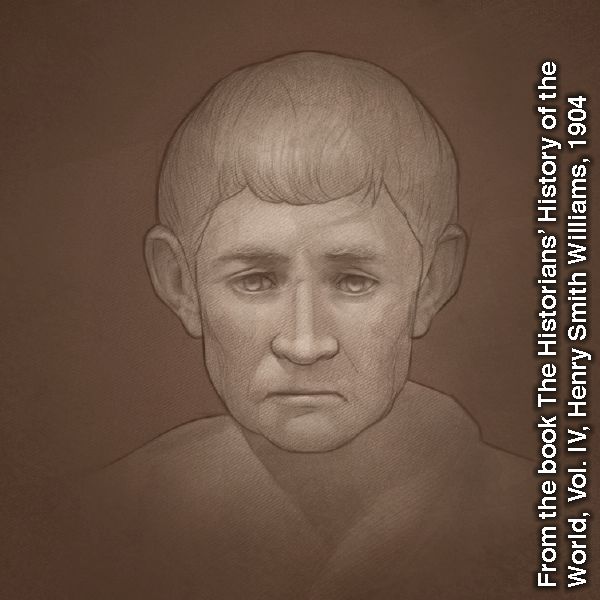PORTRAITS FROM THE PAST Aristotle
.jpg) OVER 2,300 years ago, Aristotle made major contributions to science and philosophy. His works have commanded sustained interest and have been widely translated and studied. History Professor James MacLachlan wrote that “Aristotle’s views of nature dominated European thought for almost 2,000 years.” Some of Aristotle’s views even influenced Catholic and Protestant teachings, as well as Islam.
OVER 2,300 years ago, Aristotle made major contributions to science and philosophy. His works have commanded sustained interest and have been widely translated and studied. History Professor James MacLachlan wrote that “Aristotle’s views of nature dominated European thought for almost 2,000 years.” Some of Aristotle’s views even influenced Catholic and Protestant teachings, as well as Islam.
His Range of Interests Was Vast
Aristotle wrote about art, astronomy, biology, ethics, language, law, logic, magnetism, metaphysics, motion, pleasure, poetry, politics, psychology, and rhetoric, as well as the soul, which he viewed as mortal. His fame, however, rests foremost on his work in biology and logic.
Ancient Greek scholars relied on their powers of observation, deduction, and logic to explain the natural world. Starting with what they considered to be obvious truths, they believed that if they reasoned carefully on such truths, they would be able to come to correct conclusions.
Guided by that philosophy, they did draw a number of sound conclusions—one being that there was an underlying order in the universe. A major problem, however, was that their powers of observation were limited to their unaided senses—a limitation that led many brilliant men, including Aristotle, astray. For instance, they believed that the planets and stars moved around the earth. At that time, this was considered to be a self-evident truth. “Both reason and experience seemed to confirm the Greek view of an earth-centred universe,” states the book The Closing of the Western Mind.
That mistaken view would have been of little consequence had it remained purely in the realm of science. But it did not.
Catholicism Embraces Aristotle
In medieval “Christian” Europe, some of Aristotle’s teachings attained the status of received truth—that is, they were generally accepted as being correct. Roman Catholic theologians—most notably Thomas Aquinas (c. 1224-1274)—incorporated Aristotle’s writings into their theology. Thus, Aristotle’s notion that a stationary earth lies at the center of the universe became Catholic dogma. The teaching was also adopted by Protestant leaders, such as Calvin and Luther, who said it was Biblical.—See the box “They Read Too Much Into the Bible.”
Some of Aristotle’s teachings attained the status of received truth
“In some areas of thought [Aristotle’s teachings] and Catholicism became virtually indistinguishable,” said writer Charles Freeman. Thus, it has been said that Aquinas “baptized” Aristotle into the Catholic faith. In reality, however, “Aquinas was converted to Aristotelianism,” wrote Freeman. And to some extent, we might add, so was the church. As a result, Italian astronomer and mathematician Galileo, who dared to present observational proof that the earth orbited the sun, was required to appear before the Inquisition and was forced to recant.* Ironically, Aristotle recognized that scientific knowledge is progressive, subject to revision. If only churches had adopted the same view!
QUICK FACTS
Aristotle had a passion for knowledge and “a deep reverence for the value and excellence of the universe about him.”—Aristotle—A Very Short Introduction.
Nature, he believed, has an eternal “Prime Mover” that causes eternal movement and that is good and exists outside the universe.
Aristotle is credited with founding two sciences—biology and logic.
Aristotle tutored a Macedonian boy who later became the empire builder Alexander the Great.

Many ancients believed in an earth-centered universe
They Read Too Much Into the Bible
Some early theologians clung to Aristotle’s geocentric view of the universe because they read too much into certain Bible passages, such as Psalm 104:5. It states: “[God] established the earth on its foundations; it will not be moved from its place forever.” The Bible writer was not describing earth’s place in the cosmos. Rather, using poetic language, he was pointing to the planet’s permanence according to God’s purpose. —Ecclesiastes 1:4.
That said, when the Bible touches on scientific matters, its statements are accurate. For example, Job 26:7, recorded about 3,500 years ago, says that God “[suspended] the earth upon nothing.” Job 38:33 states that celestial bodies are governed by physical laws.